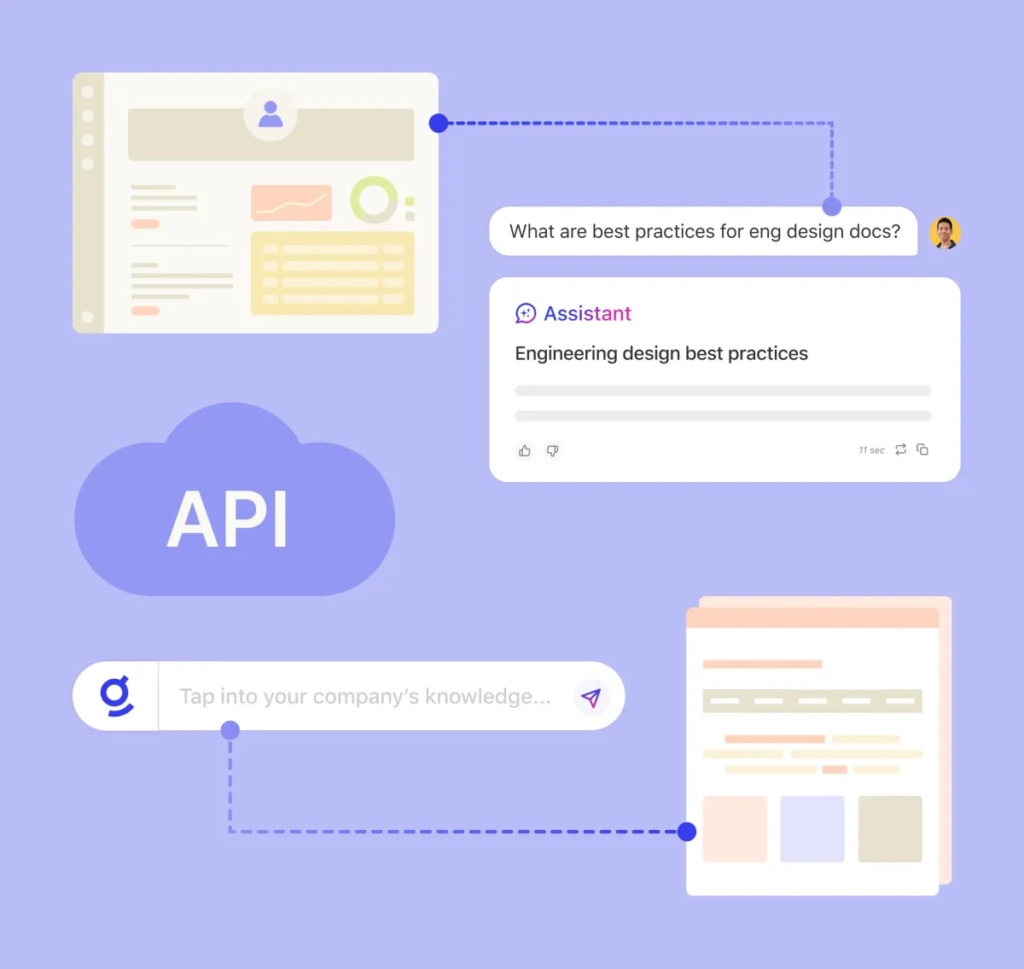
GenAI has its share of challenges, but if there’s one area where it truly excels, it’s in surfacing answers from vast pools of data.
Enter Glean, a software solution that connects to both first-party and third-party databases within enterprises. Think of it as a custom ChatGPT tailored for plain-English requests. Arvind Jain, co-founder of cloud data management company Rubrik, launched Glean after observing that Rubrik employees often struggled to find essential information for their work. This issue wasn’t unique to Rubrik; employees across various companies faced similar difficulties.
Jain explained, “I saw that engineers were spending too much time outside of code, account managers couldn’t locate the latest research or presentations needed for deals, and new employees took too long to onboard.” These challenges impacted productivity and overall employee experience.
A recent Gartner survey revealed that 47% of desk workers struggle to find the data necessary for their job tasks. Additionally, the growing number of apps employees must manage (now averaging 11, up from six five years ago) exacerbates the problem.
In 2019, Jain and a small founding team developed Glean, an AI-powered search app specifically designed for enterprise customers. Initially, it fell into the category of “cognitive search,” similar to Microsoft’s SharePoint Syntex and Amazon Kendra. Leveraging natural language processing, early versions of Glean not only understood document details but also addressed search queries from employees across organizations.
Over time, Glean has transformed into a platform that interfaces with and analyzes a company’s databases and data repositories to address employee queries. This evolution aligns with the surge in generative AI trends. Today, Glean ingests information from various sources, including support tickets, chat messages, and customer relationship management (CRM) entries. It then applies generative AI techniques to extract insights and provide relevant answers.
Naturally, companies might express reservations about connecting their proprietary data—especially internal chat data—to a generative AI platform that performs deep scraping and analysis. Such concerns are valid.
A recent Cisco poll revealed that more than one in four organizations have prohibited the use of generative AI due to privacy and data security risks. Companies worry that these tools could compromise intellectual property (IP) or inadvertently disclose sensitive information to the public or competitors.
However, Arvind Jain, the founder of Glean, asserts that the platform prioritizes security and privacy, albeit within the constraints of a cloud-based generative AI system. Jain explains, “Glean adheres to the same permissions set in a company’s data sources (such as Slack, Teams, Jira, ServiceNow, etc.). Employees receive answers based on their authorized data access. Additionally, when a user deletes a document within the underlying application, Glean removes it from its system.”
But what about the common pitfall plaguing most generative AI systems—hallucinations? Is Glean immune to fabricating facts, misquoting, or misunderstanding basic requests?
While I couldn’t personally test Glean, Jain emphasizes the measures in place to enhance reliability. These include a model trained on customer data to learn industry-specific jargon and the ability for customers to switch among various open-source generative AI models, which drives Glean’s core functionality.
According to Jain, AI work assistants must provide personalized results based on the searcher’s context. Factors such as their role, job function, management hierarchy, specific projects, responsibilities, and even their collaborators play a crucial role in defining relevant content. Glean, therefore, tailors a custom model for each customer, ensuring highly personalized outcomes for every employee.
To enhance performance, Glean employs RAG (Retrieval-Augmented Generation), a technique that grounds generative AI by retrieving information from external knowledge sources. Jain emphasizes that every answer provided by Glean is fully traceable back to its original source.
Glean goes beyond mere recommendations; it can suggest documents essential for day-to-day work by learning from past work patterns. Additionally, it offers a turnkey implementation of a sophisticated AI ecosystem, complete with over 100 connectors.
The company’s revenue growth has been robust, despite competition from vendors like Microsoft (specifically Copilot) and OpenAI (ChatGPT), as well as enterprise search providers such as Coveo, Sinequa, and Lucidworks. Annual recurring revenue has nearly quadrupled in the last year

Contrary to the prevailing narrative that corporations are wholeheartedly embracing generative AI (GenAI), the reality is that many have been cautious and slow to deploy it across their business functions.
According to a December 2023 survey by Convrg.io, an Intel subsidiary, only 10% of organizations had fully launched GenAI solutions into production by that time. The majority of solutions remained in the research and testing phases, suggesting that companies struggled to identify profitable GenAI use cases.
However, Glean, with its strong financials and impressive customer base (including Duolingo, Grammarly, and Sony), has managed to win over investors. In a recent announcement, Glean revealed that it raised $200 million in a Series D funding round. The round was co-led by Kleiner Perkins and Lightspeed Venture Partners, with participation from other prominent investors such as General Catalyst, Sequoia Capital, and ICONIQ.
Mamoon Hamid, a partner at Kleiner Perkins, expressed confidence in Glean’s potential: “The opportunity for Glean is enormous. We believe in the team’s ability to provide a GenAI solution for enterprises. Having invested in every round prior to this, including leading their Series A in 2019, I see huge potential in Glean’s ability to transform the way people work.”
The new capital brings Glean’s total funding to approximately $360 million, valuing the startup at $2.2 billion. Glean plans to utilize these funds to expand its teams (currently based in Palo Alto with around 300 employees), enhance its product, and develop a robust go-to-market strategy.
Despite the challenges faced by many GenAI solutions, Glean has experienced strong and growing demand from enterprises over the past year.
.